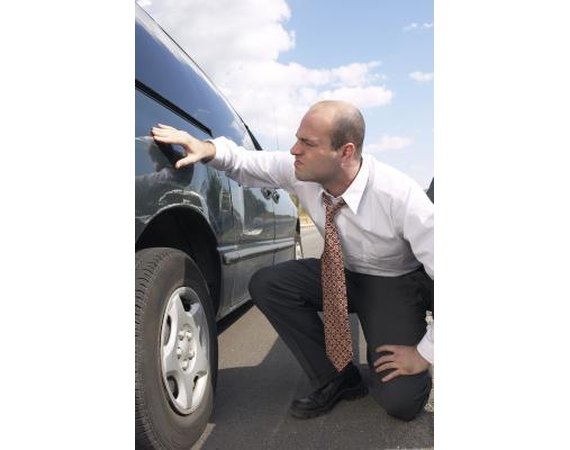
About 20 million to 25 million Americans have no credit, according to the Fair Isaac Corp., the originator of the FICO credit score. Getting an auto loan, like all other loans, depends upon both credit score and your income. If you haven't used a lot of credit in the past, or have not used credit in a long time, you may have more difficulty obtaining a car loan because of your limited credit history.
Credit History
As a consumer, your interaction with different forms of credit, such as credit cards or mortgages, forms the basis of your credit history. If you've never had a loan or don't use credit, you don't have any credit history. While it is possible for people with no or limited credit histories to get a loan, it is up to each individual lender to determine the standards required to obtain funds.
Lenders
Whenever you apply for a loan, your lender will want to know how you've handled credit in the past. If, for example, you've always paid your bills on time, you probably look like a good candidate for a lender considering giving you money. Your credit history shows a lender whether you represent a risk or a safe investment. If you don't have much of a credit history, your lender is probably less likely to give you a loan.
Credit Score
Your credit score is based on your credit history. If you have no credit history, you don't have a credit score. If you have a limited history, your score is probably lower than average because part of your history is based on the kinds of credit you've used, the number of accounts you have and the length you've had them. If, for example, you've only had one credit card for the past year, you probably do not have a very high credit score. Low credit scores make it harder to get a loan.
Other Factors
While people with limited credit histories will have a harder time getting an auto loan and may have to pay more interest than those with a strong history, your credit history is not the only factor lenders use. A lender may also ask you to prove your income, such as by requiring you to provide your tax returns from the previous two years or pay stubs. If you can't do this and have no credit history, it will be very difficult to get any kind of loan.






















